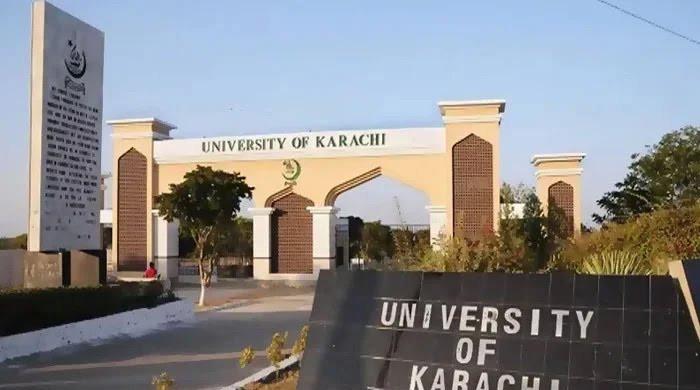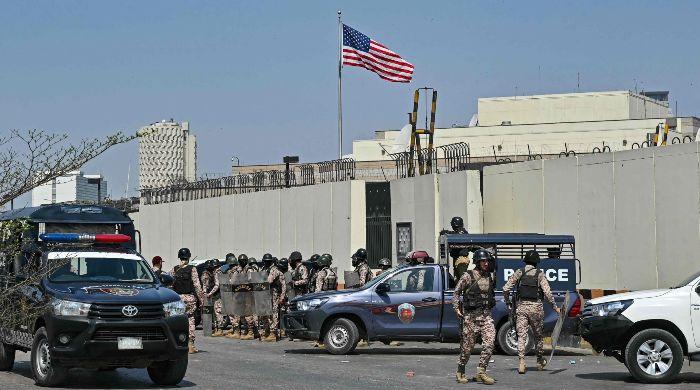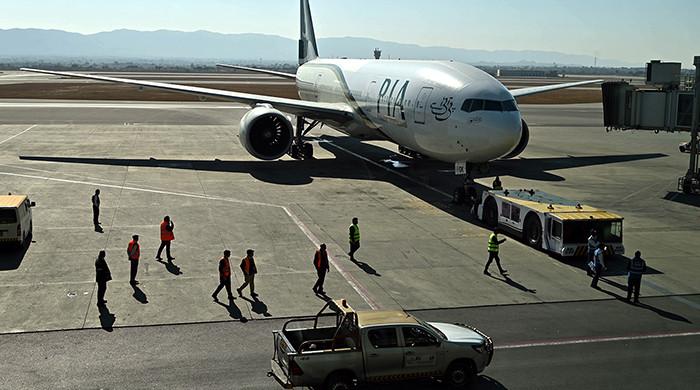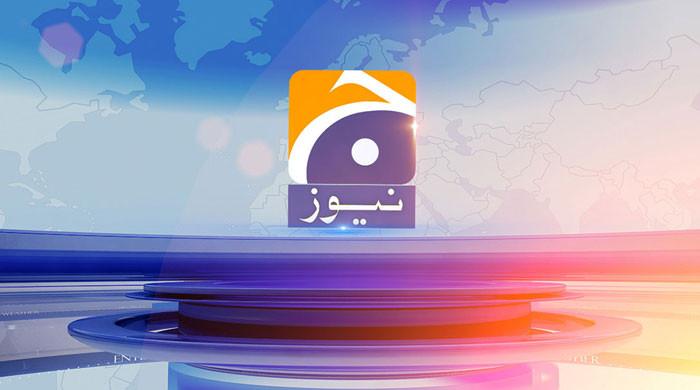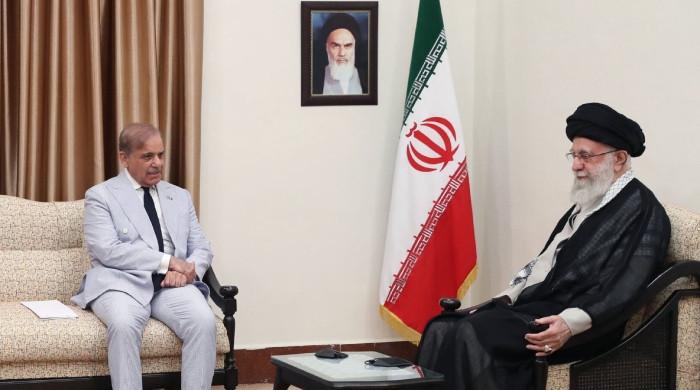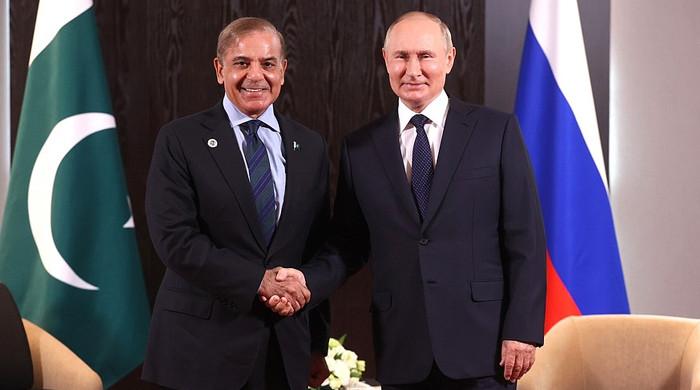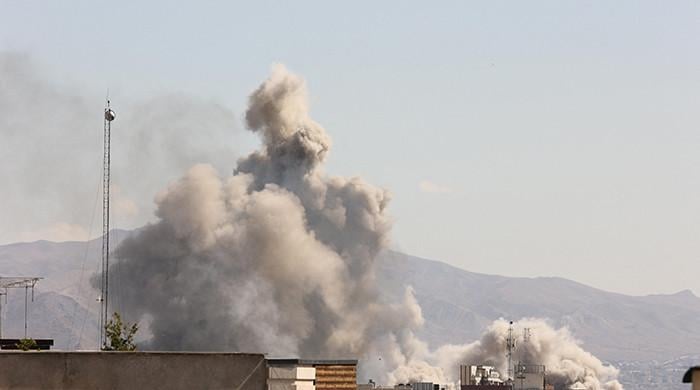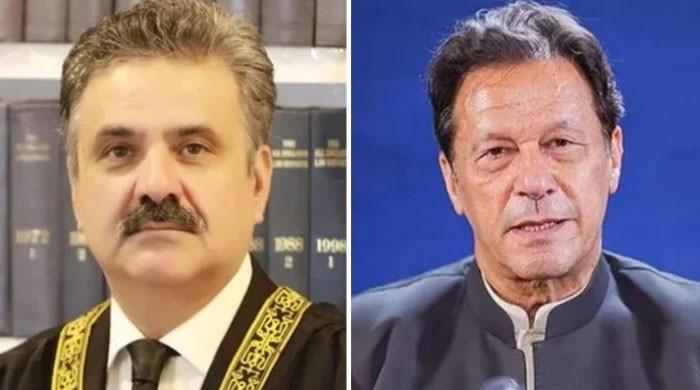China to help end Pakistan energy crisis: Li
ISLAMABAD: China and Pakistan should make the cooperation on power generation a priority, Chinese Premier Li Keqiang said, as Pakistan seeks to end an energy crisis that triggers power cuts of up to...
May 23, 2013
He was addressing a luncheon hosted in his honour by President Asif Ali Zardari here at the Aiwan-e-Sadr on Wednesday.Li arrived in Islamabad under extra-tight security on the second leg of his first official trip since taking office in March and after a visit to India.
Li's plane was escorted by six air force fighter jets as it entered the Pakistani airspace. Security measures also included shutting down mobile phone networks briefly across the city.
"Our two sides should focus on carrying out priority projects in connectivity, energy development and power generation and promoting the building of a China-Pakistan economic corridor," Li said.
President Zardari urged the need for improved connectivity between Pakistan and China and the region at large which he said would turn this region into a vibrant trade, energy and the two leaders agreed to boost bilateral relations in the fields of economy, trade, investment, agriculture, industry, defence and people-to-people contacts with special focus on strengthening the economic linkages.
The two leaders expressed satisfaction on the current status of bilateral trade ties and urged the need for more consistent efforts on both sides to boost the bilateral trade to $15 billion from the current $12.4 billion in the next two to three years.
The two sides agreed to speed up work on the projects identified under the Five Year Development Programme and also decided to press ahead with the second phase of negotiations on the China-Pakistan Free Trade Agreement. The meeting decided to start work on the China-Pakistan Agriculture Demonstration Zone and establishing Young Entrepreneurs Forum for this purpose.
The president called for opening more branches of Chinese banks in Pakistan and the operationalisation of the currency swap arrangement which, he said, would help bolster trade and business linkages between the two countries.
While expressing satisfaction over the working of Pak-China Joint Energy Working Group, he asked for early holding of its third round and said Pakistan appreciates the interest of Chinese solar and wind companies to invest in these sectors.
The two leaders shared common concerns on terrorism, separatism and extremism and said that it posed serious threats to regional peace, stability and security. They reiterated their resolve to continue cooperation both at bilateral and multilateral levels in combating these evil forces.
Li Keqiang said that the government and the people of China recognised and appreciated the huge human and material sacrifices Pakistan had made in the fight against extremism and assured that China will continue to support Pakistan in combating terrorism. He thanked the president and Government of Pakistan for the warm welcome and hospitality and said Pakistan was an important country in the region and it had made significant contribution to peace, stability and development of the region and the world at large, adding that the Pak-China relationship was an excellent example of countries of different social systems living in amity with each other.
Li assured that China will continue to firmly support Pakistan in its efforts to uphold independence, sovereignty and territorial integrity and achieving national stability and development.
Meanwhile, Pakistan and China inked 12 agreements and memoranda of understanding (MoUs) that mainly included the long-term economic corridor plan, maritime cooperation and satellite navigation.
President Zardari and Chinese Premier Li Keqiang witnessed the signing ceremony as the representatives of the two countries inked the documents at a ceremony held at the Aiwan-e-Sadr. The visit of Chinese Premier Li Keqiang marked the signing of important documents aimed at long-term cooperation between the two countries in multiple areas.
An MoU on maritime cooperation between the two governments, an agreement on boundary management system between China's Xinjiang and Gilgit-Baltistan area, and another agreement on border ports and their management system was signed by Chinese Foreign Minister Wang Yi and Jalil Abbas Jilani.
MoU on cooperation for long-term plan on China-Pakistan economic corridor between the two governments was inked by Xu Shao Shi, Chairman National Development and Reform Commission, China, and Shahid Amjad Chaudhry, Adviser to the Prime Minister.
China's Minister for Commerce Gao Hucheng and Pakistan's Secretary Economic Affairs Division Shahzad Arbab signed the agreement on economic and technical cooperation and the handing over certificate of seismographic network.
An MoU on cooperation in the field of marine science and technology between the State Oceanic Administration (SOA) of China and the Ministry of Science and Technology of Pakistan was signed by Administrator SOA and Secretary Ministry of Science and Technology Akhlaq Ahmad Tarar.
Agreement between China Satellite Navigation Office (CSNO) and Pakistan Space and Upper Atmosphere Research Commission for Cooperation (Suparco) was inked by Director CSNO Ran Chengqi and Major General (R) Ahmed Bilal.
Agreement on establishment of Confucius Institute at the Karachi University was signed by Xu Lin, Head of National Office for Chinese Language, and Muhammad Qaiser, Vice Chancellor Karachi University. The other documents that were signed included Annual Blister Purchase Contract and Greige Fabric Contract.




